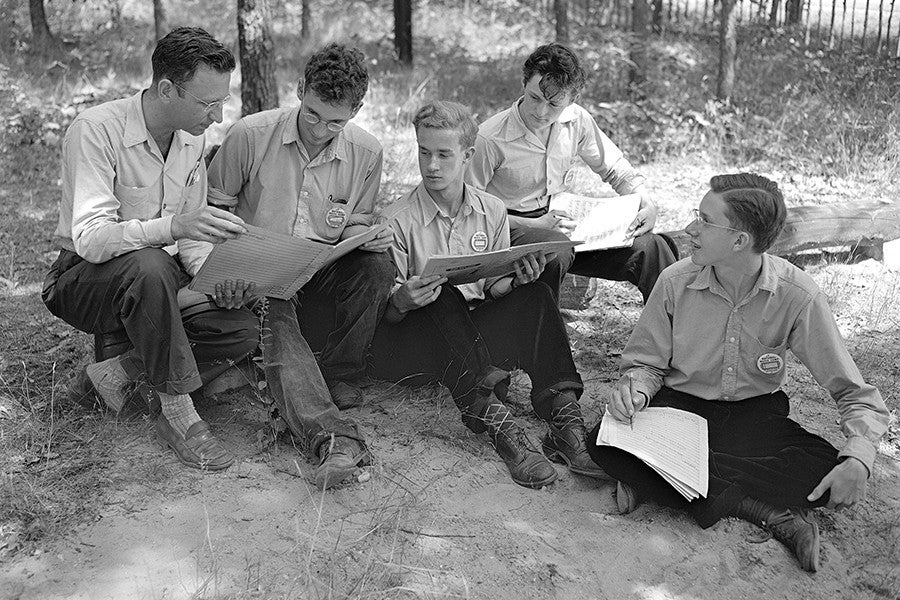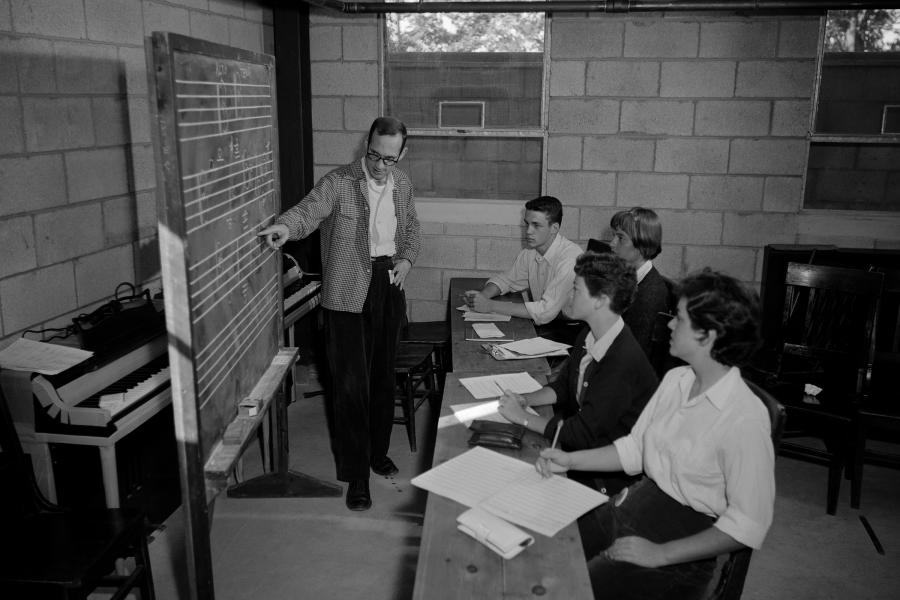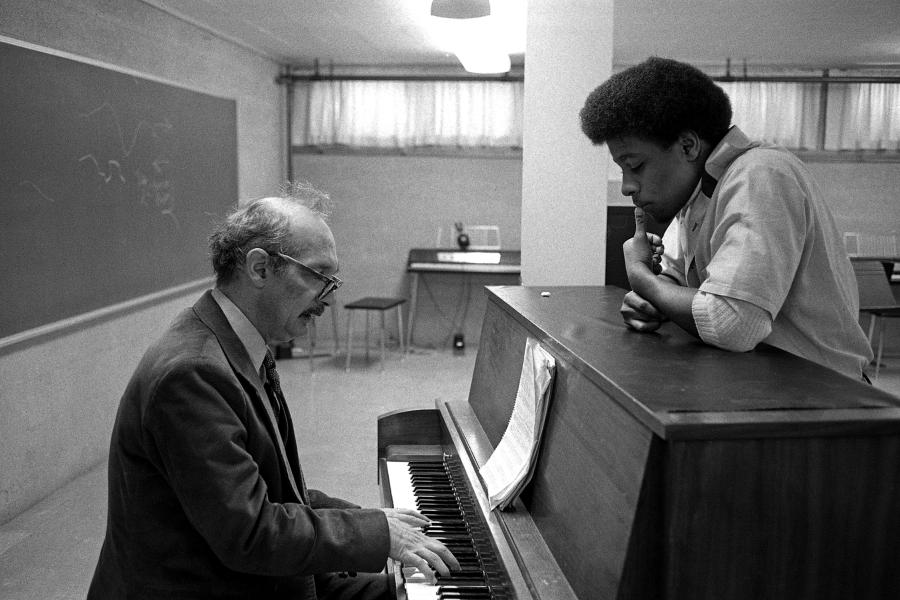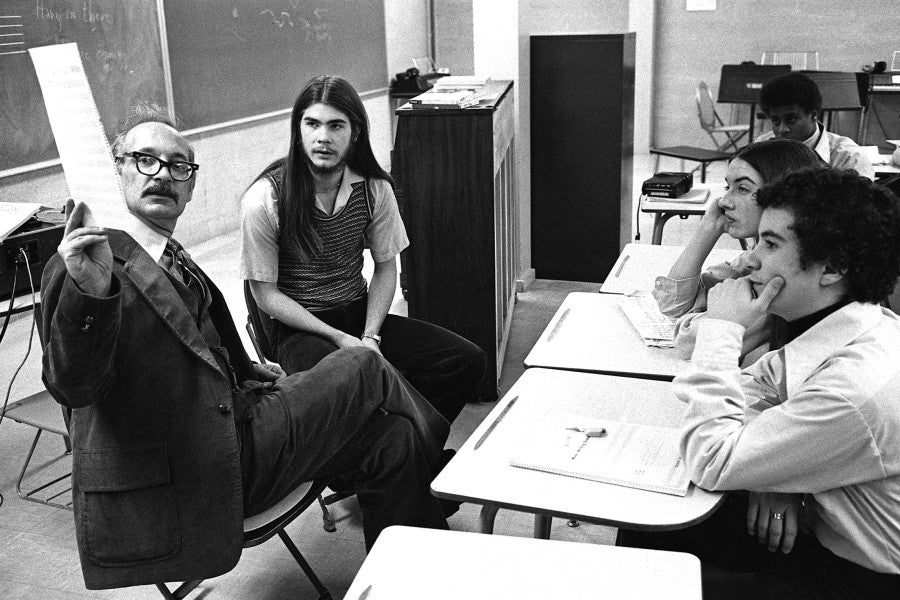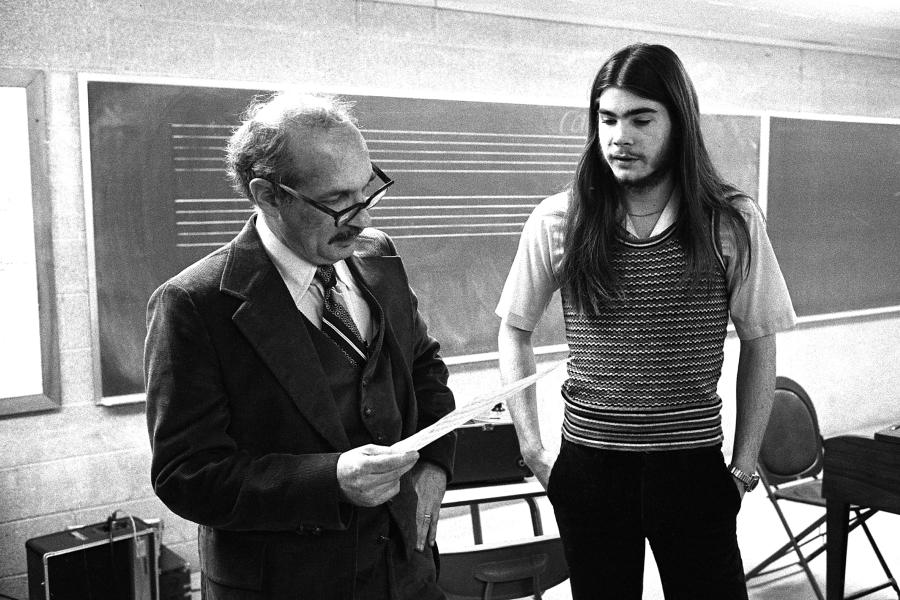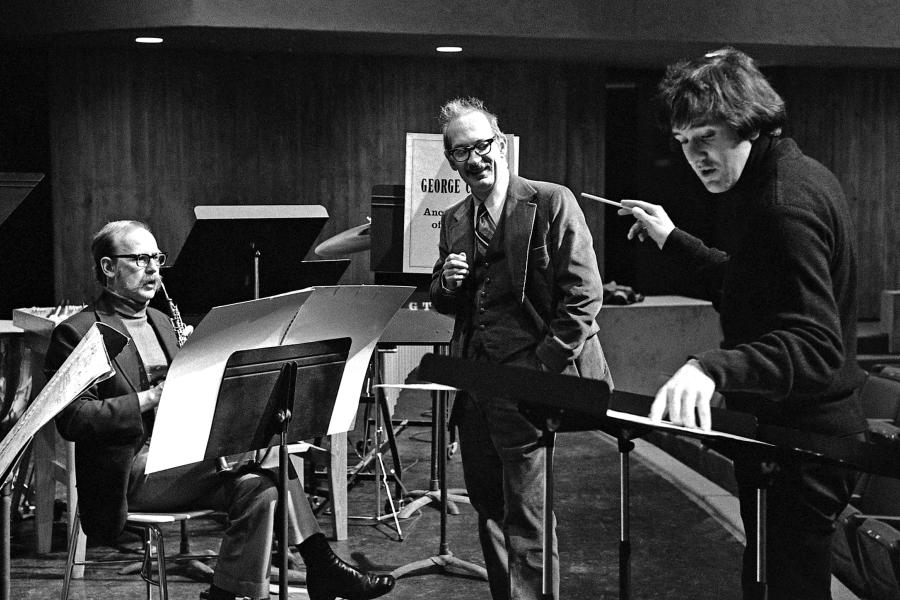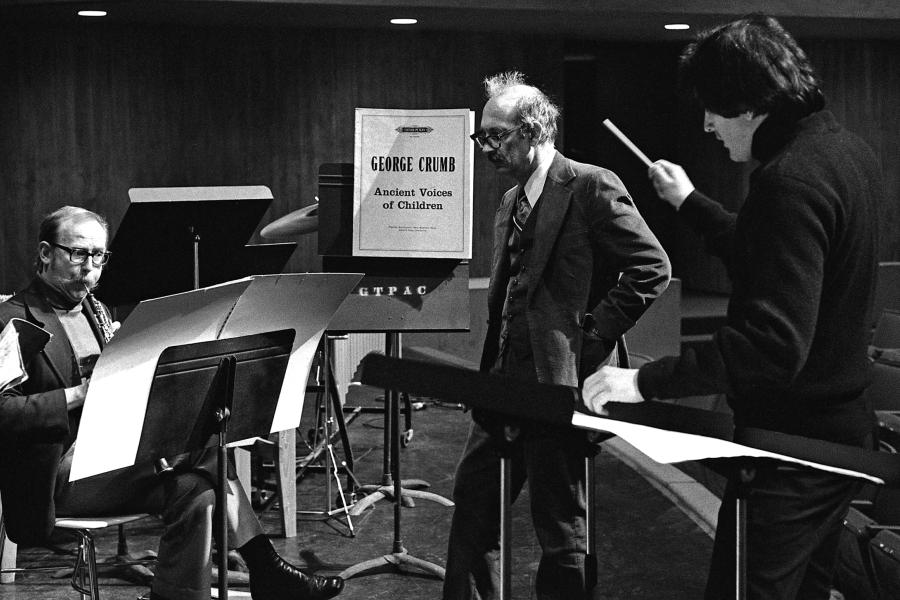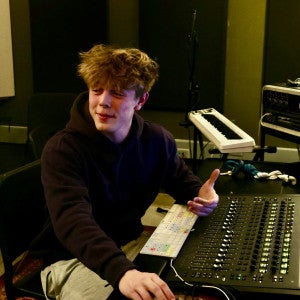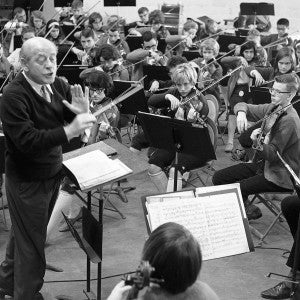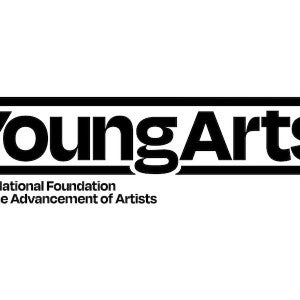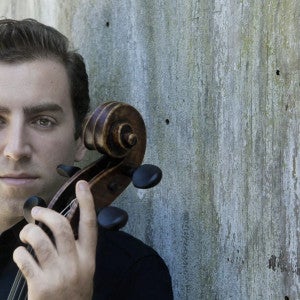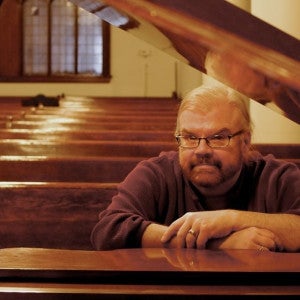Mourning the loss of George Crumb
The Interlochen community mourns the loss of legendary composer George Crumb, an alumnus of the National Music Camp and former faculty member at Camp and Interlochen Arts Academy.
The Interlochen community mourns the loss of legendary composer George Crumb, who died on Feb. 6, 2022 at age 92. A 1947 alumnus of the National Music Camp (the predecessor to Interlochen Arts Camp), Crumb served as Camp faculty from 1957-59 and in 1961 and on the faculty of Interlochen Arts Academy during the 1975-76 school year.
George Henry Crumb, Jr. was born on Oct. 24, 1929 in Charleston, West Virginia. Crumb's upbringing was particularly musical: both of his parents were professional musicians, his father a clarinetist and his mother a cellist. Crumb studied clarinet with his father and began composing music at the age of 10.
Crumb studied piano, composition, and conducting at Interlochen when he was 18 years old. During his time at Camp, Crumb had several of his works performed at student recitals and composed original music for one of the Camp's radio dramas.
After Interlochen, Crumb attended Mason College of Music and the University of Illinois at Champaign-Urbana. He earned his doctoral degree from the University of Michigan, where he studied composition with Ross Lee Finney.
As a composition and music theory instructor at the National Music Camp and Interlochen Arts Academy, Crumb guided and mentored numerous young musicians. He oversaw several performances of his compositions at Interlochen, including a 1975 performance of "Ancient Voices of Children" featuring longtime Interlochen instructor Dan Stolper on oboe. Since then, his works have been regularly performed by Interlochen students, faculty, and guest artists.
As a composer, Crumb was influenced by Béla Bartók, Gustav Mahler, and Claude Debussy, particularly by Debussy's use of color and timbre. Crumb frequently experimented with different timbres in his own music, often requiring performers to play their instruments in different and novel ways. He also experimented with alternative forms of musical notation—most notably the circular score—and the juxtaposition of musical styles.
One of Crumb's most notable works, "Black Angels (Thirteen Images from the Darkland) (Images I)," was a protest against the Vietnam War that utilized spoken word, bowed water glasses, and electronics. The piece inspired violinist David Harrington to found the Kronos Quartet, which first performed at Interlochen in 1991 soon after recording the work. Other notable works include Makrokosmos, a 24-piece, four-book collection of works for solo piano; American Songbook, seven volumes of arrangements of American hymns, spirituals, and popular tunes; and Vox Balaenae (Voice of the Whale), a work for electric flute, cello, and amplified piano.
Crumb taught at the University of Colorado for five years and at the University of Pennsylvania for more than 30 years; some of his notable students include composers Christopher Rouse, Jennifer Higdon, Margaret Brouwer, and Gerald Levinson, among many others. He won a Pulitzer Prize for Music for his piece "Echoes of Time and the River" in 1967 and a Grammy Award for Best Classical Contemporary Composition for his piece "Star-Child" in 2011.
Crumb is survived by his wife, Elizabeth (IAC St 57-59, 61), and his sons David and Peter. He was preceded in death by his daughter, actor and singer Ann Crumb (IAC/NMC 59, 61).
